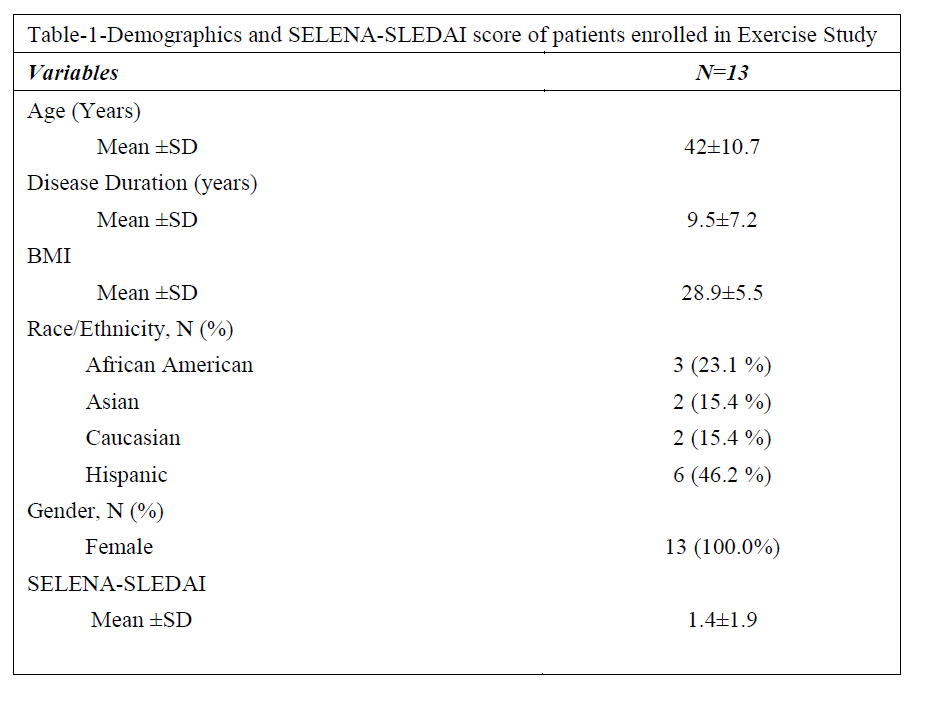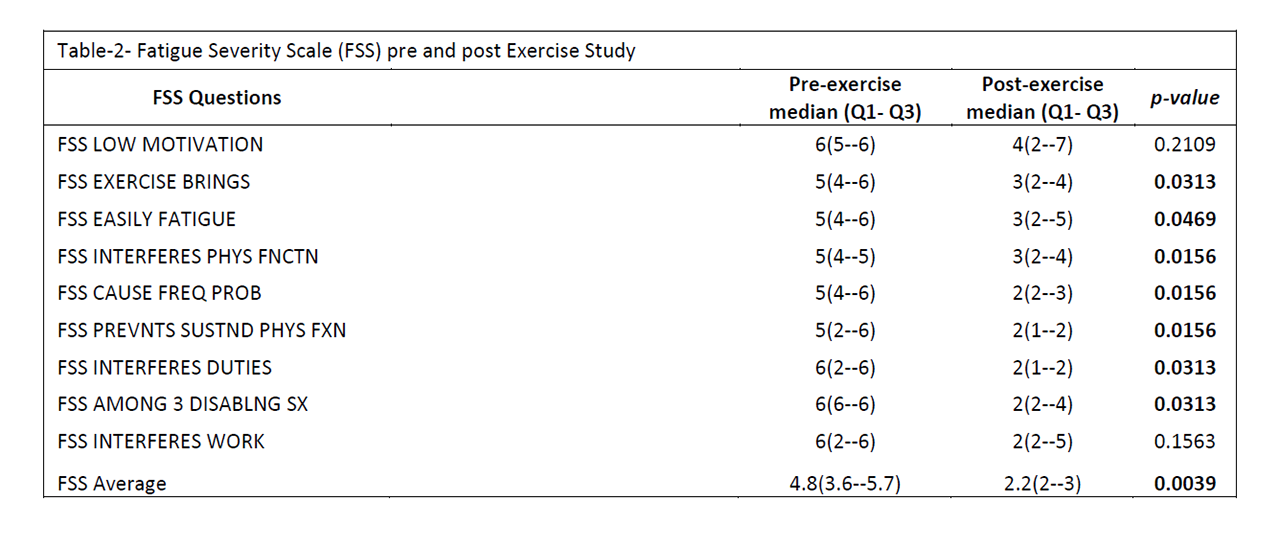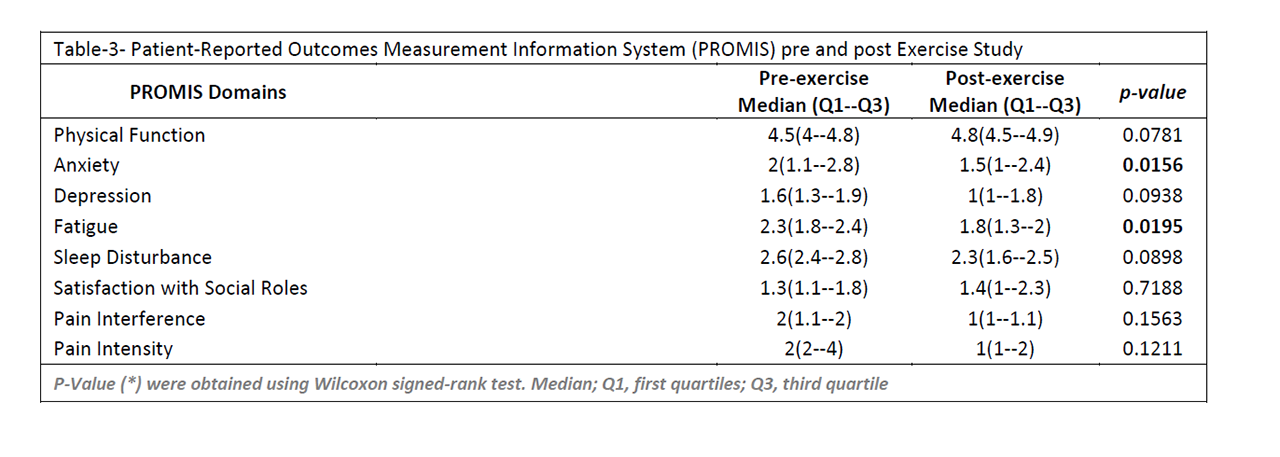Session Information
Session Type: Poster Session (Monday)
Session Time: 9:00AM-11:00AM
Background/Purpose: Systemic lupus erythematosus (SLE) is a chronic autoimmune disease that predominantly afflicts women. One of the most debilitating symptoms experienced by SLE patients is persistent fatigue. We previously found that fatigue, as measured by the Fatigue Severity Scale (FSS), is independent of SLE disease activity, as measured by the Safety of Estrogen in Lupus Erythematosus National Assessment Group-Systemic Lupus Erythematosus Disease Activity Index (SELENA-SLEDAI) scores. The purpose of this study is to characterize the response and adaptation to an aerobic exercise program in SLE patients with significant fatigue and minimal disease activity.
Methods: A cohort of 20 SLE patients with minimal to no disease activity (SELENA-SLEDAI < 4) and a FSS score of > 3 are being enrolled in a supervised, aerobic exercise training program that consists of vigorous walking on a treadmill for 30 minutes, three times a week for 12 weeks. The primary outcome measure is the time it takes the subjects to reach anaerobic threshold during a cardiopulmonary exercise test (CPET), which is performed pre and post exercise training. Vascular endothelial dysfunction and arterial stiffness are measured by non-invasive vascular studies. Secondary outcome measures such as the FSS, SELENA-SLEDAI scores and the Patient-Reported Outcomes Measurement Information System (PROMIS) survey assesses changes in disease activity and fatigue.
Results: So far, 13 SLE patients have been screened and enrolled into the protocol. Of the 13 patients enrolled, the average age is 42 years with the mean disease duration of 9.5 years. In the 9 patients that have completed the study so far, baseline average SLEDAI score was 1.4 and remained unchanged at the end of the study. All patients attended ≥ 80% of the exercise sessions, with no serious adverse events. The FSS average baseline scores was 4.8 and significantly decreased to 2.2 following the exercise program (p=0.0039). At the end of the study, the PROMIS survey also demonstrated an overall improvement most significantly in anxiety and fatigue.
Conclusion: Supervised aerobic exercise training improves patient-reported fatigue in SLE, without exacerbation of disease activity. These patients with SLE were able to tolerate vigorous exercise training, suggesting physical exercise may be a valuable intervention to consider for SLE patients with significant fatigue and minimal disease activity.
To cite this abstract in AMA style:
Chapman M, Gupta S, Chu J, Naqi M, Manna Z, Mazhar M, Munday A, Stockman M, Dinkard B, Chin L, Kaplan M, Keyser R, Chan L, Hasni S. Role of Aerobic Exercise in Modulating Fatigue in Women with Systemic Lupus Erythematosus [abstract]. Arthritis Rheumatol. 2019; 71 (suppl 10). https://acrabstracts.org/abstract/role-of-aerobic-exercise-in-modulating-fatigue-in-women-with-systemic-lupus-erythematosus/. Accessed .« Back to 2019 ACR/ARP Annual Meeting
ACR Meeting Abstracts - https://acrabstracts.org/abstract/role-of-aerobic-exercise-in-modulating-fatigue-in-women-with-systemic-lupus-erythematosus/



